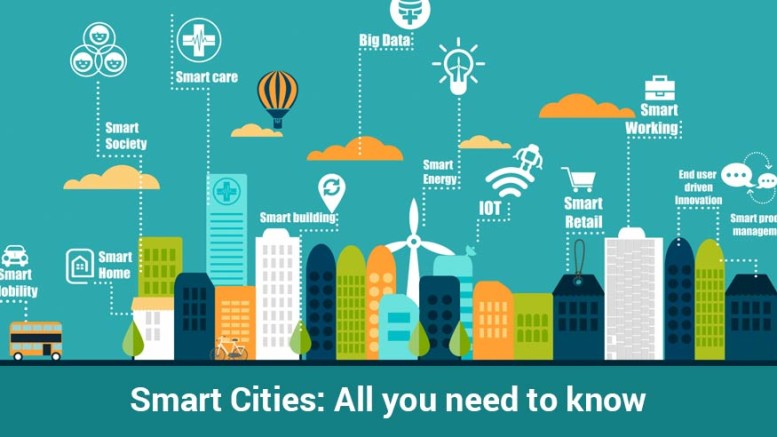A smart city is more about the synergistic functioning, and coordination of different parts of a city’s ecosystem. These tangible components are smart energy, smart infrastructure, smart water management, and intangible aspects such as transparency in governance, and smart service delivery mechanisms.
The burgeoning urban population in India is making it nearly impossible to provide basic infrastructure such as electricity, water supply, and hassle-free transportation. With urbanization taking place at a breakneck speed, the urban areas are expected to house 40% of the country’s population, while contributing 75% of its GDP by 2030. To facilitate this, a comprehensive development of physical, social, and economic infrastructure is required. The development of smart cities is a step in that direction. The concept of smart city is the need of the hour, and is expected to bring an efficient system that promises high living standards, employment, and investment opportunities.
The government of India announced its plan to set up 100 smart cities across India in the first phase and more cities are added and it would reach the number 200 very soon. Real estate, ICT, Telecommunication, Transportation, and Power & Energy are a few such industries which are integral to the smart city buzz. Many of these cities will include special investment regions or special economic zones, with modified regulations, and tax structures to make such places attractive destinations for foreign investment. The government’s strong endorsement of the smart city is expected to promote funding from private developers, and overseas investors.
Information technology companies, manufacturing companies, and real estate companies are key components of a smart city. A close coordination among all these entities is essential for the success of the smart city projects. IBM, Cisco, and Accenture are known to be set of IT companies that have initiated to play a vital role in smart cities related projects. Globally GE, Hitachi, Honeywell, Alstom, Johnson Controls, Landis & Gyr, Mitsubishi, Schneider Electric and Siemens are identified as important smart equipment, and product manufacturers. Real estate players in India such as Sobha Developers, Lodha Group, Total Environment, and Mantri Developers have already on the mode of building similar projects, and are expected to lead the smart buildings market in the near future.
The compounded annual growth rate (CAGR) of the total market for smart cities is expected to be more than 66% according to our estimate in the next eight years, and the smart buildings segment is expected to dominate with a majority of the market share throughout the forecasting period. The market is expected to reach $14,100.49 by 20124 through its multiple components – Smart Buildings Smart Transportation System, Smart Water Management and Smart Energy Management Smart energy management.
Smart City Market in India: The Market Segments of Smart Cities in India.

